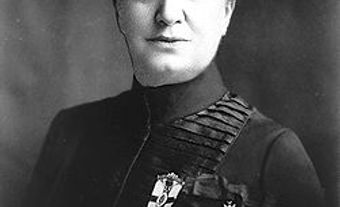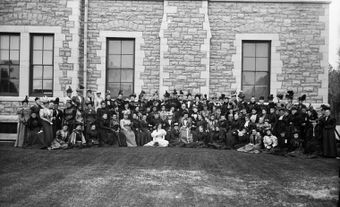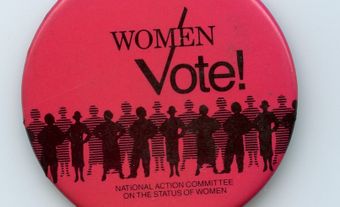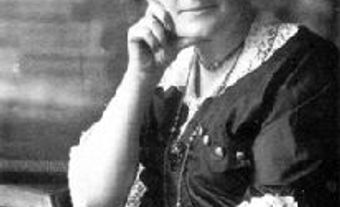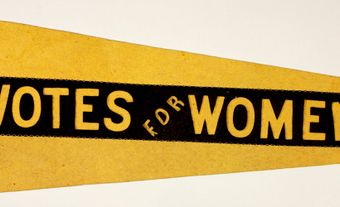Agnes Campbell Macphail, politician, reformer (born 24 March 1890 in Proton Township, Grey County, ON; died 13 February 1954 in Toronto, ON). Agnes Macphail was the first woman elected to the House of Commons (1921–40) and was one of the first two women elected to the Ontario legislature (1943–45, 1948–51). She was also the first female member of a Canadian delegation to the League of Nations. Macphail was a founding member of the Co-operative Commonwealth Federation (the forerunner of the New Democratic Party). She was a noted pacifist and an advocate for prison reform. As a member of the Ontario legislature, she championed Ontario’s first equal pay legislation (1951).
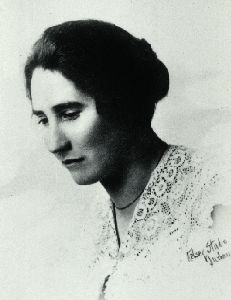
Early Life and Career
Agnes Macphail was born in Grey County, Ontario (south of Georgian Bay), to a farming family of Scottish descent. As a girl, she disliked housework and preferred helping her father tend the livestock. Macphail longed for a life outside farming. She was excited to pass her high school entrance exam at age 14. However, her parents wanted her help on the farm. It took her two years to gain their permission for further education. In 1906, Macphail left home to attend the Owen Sound Collegiate School, followed by the Normal School for teachers in Stratford, Ontario (1908–10). After graduation, Macphail taught at a number of schools in Ontario and in Alberta.
Farming Politics
Macphail’s last teaching post was at Pegg’s School near Sharon, Ontario. While in Sharon, she became increasingly active in the Ontario agricultural co-operative movement. She joined local farming organizations and the United Farmers of Ontario (UFO), a farmers’ political, educational and social organization that had formed in 1914. In 1919, the UFO won a landslide victory in the Ontario provincial election. Two years later, Macphail was nominated to represent South-East Grey County in the House of Commons as a member of the Progressive Party, with which the UFO was then affiliated.
First Female Member of Parliament
Macphail was the only woman elected to Parliament in 1921, the first federal election in which women had the right to vote. She served as Member of Parliament for the riding of Grey South East until defeated in the 1940 election. Macphail had allies and admirers in the House of Commons. She also faced criticism from fellow MPs (and journalists) who opposed her stance on political and social issues. She entered politics to represent the farmers of her region. Throughout her political career, she also championed the rights of miners, immigrants, prisoners, women, and other marginalized groups. Some critics suggested that Macphail’s support for these groups was influenced by communism; others implied that her judgment had been affected by her “sweet nature” and “womanly sympathy.” When she dared to criticize militarism and imperialism, she was even accused of treason.
Champion of the Working Class
Macphail tirelessly worked for her rural constituents. She denounced the high tariffs that benefited manufacturers at the expense of farmers. However, her sympathies were not only for rural workers. She fought for many other disadvantaged groups. Undaunted by accusations of communism, she criticized the government for providing subsidies to the British Empire Steel Corporation while ignoring the plight of miners in Nova Scotia, who suffered low wages and poor living conditions.
The poor conditions and precarious circumstances of the working class drove Macphail and some of her colleagues to promote a co-operative movement that would protect the interests of farmers and industrial workers. In 1924, Macphail and some of her colleagues from Alberta (including Robert Gardiner) left the Progressive Party to form the Ginger Group.
When neither the Liberal nor the Conservative governments seemed capable of responding to the Great Depression of the 1930s, the Ginger Group allied with the League for Social Reconstruction and various agrarian, labour, and socialist groups. They created a new organization, the Co-operative Commonwealth Federation (CCF). The CCF promoted the nationalization of key industries. It also called for the creation of a welfare state, which would provide universal pensions, health insurance and unemployment insurance. ( See also New Democratic Party.)
Macphail was a founding member of the CCF. However, when the United Farmers of Ontario withdrew from the CCF in 1934 (due to fears of communist influence), Macphail was forced to leave as well. Yet she continued to associate with members of the CCF. In1938, she began attending caucus meetings. She rejoined the CCF in the 1940s and represented the party in the Ontario legislature.

Prison Reform
One of Macphail’s greatest accomplishments was her role in reforming the Canadian penal system. In 1923, prisoners at the Kingston Penitentiary rioted. This prompted Macphail to investigate conditions at the prison. What she saw there shocked her and sparked her campaign for prison reform.
For years, Macphail pushed for change. She argued that prisoners should be reformed and educated, and that corporal punishment should be reduced. Her recommendations included more outdoor time and exercise for inmates; mandatory education for illiterate inmates ( see Literacy); the introduction of prison labour; and the appointment of qualified superintendents and doctors who had been trained in penology and psychology, respectively.
Although she had several supporters, her efforts were blocked by the Conservative government in power at the time. However, when the Liberals came to power in 1935, they established the Royal Commission to Investigate the Penal System of Canada. In 1939, the Penitentiary Bill recommended 88 changes to the penal system (although none of these were implemented until 1945).
War and Peace
Like many of her colleagues in the Ginger Party and the CCF, Macphail was a pacifist for much of her career. A member of the Women’s International League for Peace and Freedom, she argued against military spending; the Royal Military College; cadet training; and the glorification of war and empire.
In 1929, Macphail became the first woman nominated to the Canadian delegation to the League of Nations. She was originally assigned to a committee on the health and welfare of women and children. But Macphail insisted that she serve on the disarmament committee. Despite her commitment to peace, in 1939 she reluctantly voted in favour of Canada’s involvement in the Second World War, as “no opposition to Hitler seemed more terrible than even war.”
Women’s Rights
Canada’s first woman Member of Parliament, Macphail was a self-professed feminist. In addition to her vocal support for farming women and female workers more generally, she founded the Elizabeth Fry Society of Canada, which supported women in conflict with the law. ( See also Women and the Law.) A friend of suffragist Nellie McClung, Macphail also admired Thérèse Casgrain, who campaigned for the voting rights of women in Quebec, and supported the Famous Five petitioners who fought for the rights of women to sit in the Senate. (See Persons Case.) Macphail was an outspoken advocate of gender equity and strove to end legal discrimination against women, including modifying the grounds for divorce. She continued to support women’s rights when she became a member of the Ontario Legislature in 1943.
Member of the Ontario Legislature
In 1940, Macphail lost her seat in the House of Commons to Walter Harris, a Liberal Party candidate. For the next few years, she struggled to make a living. She lectured in Canada and the United States, wrote for the Globe and Mail, and campaigned for the Ontario CCF.
In 1943, Macphail returned to politics. She won the provincial riding of York East in Toronto, as a member of the Ontario CCF. With Rae Luckock, she was one of the first two women to become members of the Ontario Legislature. Macphail lost her seat in the 1945 election (like many of her CCF colleagues). But she was re-elected in 1948. As an MPP, she continued to support farmers, industrial workers, prison inmates, and women.
Macphail’s final political success was the passage in 1951 of Ontario’s first equal pay legislation, the Female Employees Fair Remuneration Act. She had long lobbied for equal pay legislation. Despite the limitations of the Act, which Macphail herself criticized, it was a significant step forward in terms of legislating equality. However, shortly after this success, Macphail lost her seat in the provincial election of 1951. She continued to work on projects dear to her heart, including a report on the status of women in Ontario. However, she struggled with ill health and limited income. Macphail died in February 1954, not long before Prime Minister Louis St-Laurent was to offer her an appointment to the Senate.
See also Women’s Movements in Canada; Early Women’s Movements in Canada: 1867–1960; Women’s Organizations; Status of Women; Social Justice.

 Share on Facebook
Share on Facebook Share on X
Share on X Share by Email
Share by Email Share on Google Classroom
Share on Google Classroom
